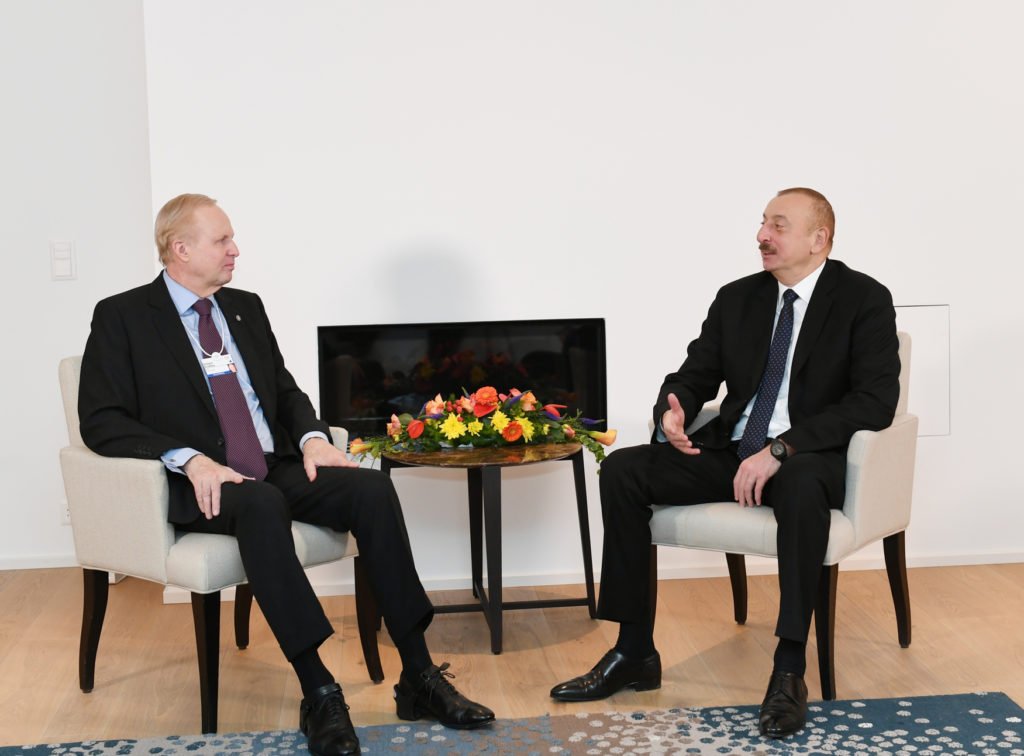
The openDemocracy.net website published a critical article about BBC’s airing of a two-part propaganda film funded by the UK oil and gas giant British Petroleum (BP) about Azerbaijan. Written by James Dowsett, the article was titled, “BBC accused of ‘whitewashing’ autocratic Azerbaijan in BP-sponsored film.” BP has invested $84 billion in Azerbaijan since 1995 and is the largest foreign corporate investor in Azerbaijan’s oil operations.
The film was titled “Wonders of Azerbaijan,” leaving no doubt about its propagandistic purpose. It was produced with the backing of the ruling Aliyev family.
Azerbaijan is one of the most corrupt countries in the world. BBC is wrong to promote such a kleptocracy. BP “has long faced criticism from human rights and climate activists for its ties to the ruling Aliyev regime, which has been accused of ‘electoral fraud,’ the silencing of dissenting voices and benefiting disproportionately from Azerbaijan’s oil and gas wealth,” openDemocracy reported.
“BP spent $300,000 on the film, which was made by the UK production company SandStone Global with support from a foundation and a media center run by members of Azerbaijan’s ruling Aliyev family. Broadcaster and historian Bettany Hughes, who co-founded SandStone, presented the film,” openDemocracy wrote.
“Emin Huseynov, an Azerbaijani journalist who fled political persecution in Azerbaijan in 2015, accused the BBC of ‘whitewashing a dictatorship’ over the film,” wrote openDemocracy. Huseynov said the BBC was giving “the floor to one of the bloodiest and most corrupt regimes in the world.”
Before its airing in August, BBC promoted the film by promising the viewers that they would discover “how Azerbaijan’s oil wealth enabled the capital Baku to flourish” and “gain the reputation of being the ‘Paris of the East.’”
In the film, Bettany Hughes traveled to Azeri-occupied Shushi, but did not say a single word about the city’s Armenian heritage. “The film also implicitly promoted Azerbaijan’s claims to Shusha [Shushi],” openDemocracy wrote. Azerbaijan has allocated millions of dollars to turn Shushi into its ‘cultural capital.’
A BBC spokesman tried to justify its objectionable transaction by telling openDemocracy that the revenue from airing the Azeri propaganda film “allows us to invest in the BBC’s world-class journalism, which provides independent and impartial news across all topics.” BBC’s ridiculous excuse is akin to a prostitute claiming that she donates to the church the money she makes from prostitution!
To generate additional income, BBC ran travel ads paid by Azerbaijan’s official tourist board during the airing of the film. The “Baku Media Center provided logistics support to SandStone, while the Heydar Aliyev Foundation helped the UK company secure filming permits and access to unique heritage sites,” a SandStone representative told openDemocracy. The Baku Media Center is run by Azerbaijani President Ilham Aliyev’s youngest daughter, Arzu Aliyeva. The Center works closely with the family-run Heydar Aliyev Foundation.
BP admitted that the propaganda film was its “contribution to Azerbaijan’s global promotion” in partnership with the Heydar Aliyev Foundation. The Foundation is chaired by Ilham Aliyev’s wife Mehriban Aliyeva, who is also the country’s vice president.
OpenDemocracy reported that “the Heydar Aliyev Foundation is tasked with promoting Azerbaijan’s image abroad, including by advancing the government position over Nagorno-Karabakh. But government critics say this work extends to diverting attention from the regime’s relentless crackdown on dissent and its systemic corruption.”
Arzu Geybullayeva, an Azerbaijani journalist living in exile, told openDemocracy: “The [Heydar Aliyev] Foundation was set up by the ruling family to whitewash Azerbaijan’s image. It can by no means be described as independent of the state.”
“The Heydar Aliyev Foundation is leading restoration works in Shusha [Shushi]. Some of these works [are] featured in the BBC program,” reported openDemocracy. Meanwhile, BP is planning a solar power plant in the city of Jabrayil, which Azerbaijan occupied in the 2020 war.
BP’s regional president Gary Jones “took to the stage at the Baku premiere of the film in late September to praise the ‘unwavering support of the [Azerbaijani] government’ for his company and its co-venturers’ operations in the country. Jones also spoke of the ‘joint effort’ that went into creating the documentary. He thanked the Heydar Aliyev Foundation for its support and paid personal homage to the president’s daughter, Arzu Aliyeva, and to the Baku Media Center she heads, ‘for their outstanding technical support’ on the production,” openDemocracy wrote.
Furthermore, “This isn’t the first time BP has collaborated with the Heydar Aliyev Foundation, or that the Foundation has cropped up on the BBC. Last year, BBC StoryWorks… ran a separate tourism-focused campaign for Azerbaijan to mark the 30th anniversary of the country’s independence from the Soviet Union. The campaign included a paid-for advertorial that invited readers to ‘discover more’ about Azerbaijan by following a link to an external website run by the Heydar Aliyev Foundation. The ‘Azerbaijan’ portal claims (among other things) that Azerbaijan’s current president Ilham Aliyev ‘has always focused on ensuring a fuller provision of human rights and freedoms in the country.’ It also contains information about the so-called ‘Armenian problem.’” However, the weblink was deleted after openDemocracy contacted the BBC. The link had included scenes from a ‘war park’ in Baku where figures of Armenian soldiers with distorted faces were featured.
BP has signed a cooperation agreement with the Heydar Aliyev Foundation to jointly implement some of its social investment projects. “Previous joint projects have included sponsored films, such as ‘The Last Session’, a 2018 documentary commemorating the birth of the Azerbaijan Democratic Republic — the short-lived independent state that was ended by Soviet invasion in 1920. BP spent $320,000 on the project, which was organized by the Baku Media Center. Arzu Aliyeva was credited as the film’s executive producer,” openDemocracy reported.


Be the first to comment